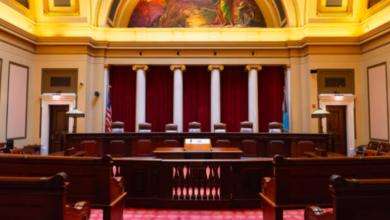Navigating Adoption: The Role of an Adoption Lawyer

Adoption is a profound and life-altering decision that involves a series of legal steps designed to create a permanent, legal parent-child relationship between individuals who are not biologically related. The legal process of adoption varies significantly depending on the jurisdiction, the type of adoption being pursued, and the specific circumstances surrounding the case. Generally, the process begins with prospective adoptive parents identifying their desire to adopt, followed by a thorough assessment of their suitability as parents.
This assessment often includes home studies, background checks, and interviews, which are conducted by licensed social workers or adoption agencies. Once the initial evaluations are completed, prospective parents must navigate the legal requirements specific to their situation. This may involve filing petitions with the court, attending hearings, and complying with state laws regarding parental rights and consent.
For instance, in cases of domestic adoption, birth parents must relinquish their parental rights voluntarily, which can be a complex emotional process. In international adoptions, additional layers of legal requirements come into play, including meeting with a child custody lawyer.
Each step in this intricate process is crucial to ensure that the adoption is legally binding and that the rights of all parties involved are respected.
The Importance of Legal Representation in Adoption
Expert Guidance in Complex Situations
Legal representation is particularly important in cases where disputes over parental rights may arise or when navigating the intricacies of interstate or international adoptions. An adoption lawyer can help navigate these complex situations, ensuring that the rights of all parties involved are protected.
Demystifying the Adoption Process
Having a lawyer who specializes in adoption law can help demystify the process for prospective parents. They can explain the various types of adoption, such as agency adoptions, private adoptions, and foster care adoptions, and help clients understand which option best suits their needs.
A Trusted Advocate Throughout the Journey
In essence, an adoption lawyer acts as a trusted advocate, guiding clients through each phase of the adoption journey while providing peace of mind. They ensure that all necessary documentation is accurately prepared and submitted on time, reducing the risk of delays or complications that could arise from improper filings.
Responsibilities of an Adoption Lawyer
An adoption lawyer has a multifaceted role that encompasses various responsibilities aimed at facilitating a successful adoption process. One of their primary duties is to provide legal advice tailored to the specific circumstances of their clients. This includes explaining the different types of adoption available, outlining the legal implications of each option, and helping clients make informed decisions based on their unique situations.
Additionally, they assist in preparing and filing all necessary legal documents, such as petitions for adoption and consent forms from birth parents. Another critical responsibility of an adoption lawyer is to represent their clients in court proceedings. This may involve attending hearings where the adoption is being finalized and advocating for the best interests of the child and the adoptive parents.
The lawyer must be well-versed in local adoption laws and procedures to effectively present their case before a judge. Furthermore, they often play a key role in negotiating agreements between birth parents and adoptive families, ensuring that all parties understand their rights and responsibilities throughout the process. By managing these legal intricacies, an adoption lawyer helps to create a smoother path toward finalizing an adoption.
Navigating the Complexities of Adoption Laws
Adoption laws can be incredibly complex and vary widely from one jurisdiction to another. Each state has its own regulations governing adoption procedures, which can include different requirements for home studies, background checks, and parental consent. For instance, some states may require a waiting period after a birth parent has signed consent before an adoption can be finalized, while others may allow immediate finalization under certain conditions.
Understanding these nuances is crucial for anyone considering adoption. In addition to state laws, federal regulations also come into play, particularly in cases involving international adoptions. The Hague Convention on Intercountry Adoption establishes guidelines for international adoptions to ensure that they are conducted ethically and legally.
Adoption lawyers must be familiar with both domestic and international laws to effectively guide their clients through the process. This includes understanding immigration laws that affect foreign-born children being adopted by U.S. citizens.
The interplay between various legal frameworks can create significant challenges; thus, having an attorney who specializes in adoption law is essential for navigating these complexities successfully.
Ensuring a Smooth Adoption Process
A smooth adoption process is often contingent upon thorough preparation and proactive communication among all parties involved. An experienced adoption lawyer plays a pivotal role in ensuring that every aspect of the process is handled efficiently and effectively. This includes conducting comprehensive assessments of prospective adoptive parents to ensure they meet all legal requirements before beginning the formal application process.
By identifying potential issues early on, lawyers can help mitigate risks that could lead to delays or complications later. Moreover, clear communication between adoptive parents, birth parents, and legal representatives is vital for fostering a collaborative environment throughout the adoption journey. An adoption lawyer facilitates this communication by acting as a liaison among all parties involved.
They ensure that everyone understands their rights and responsibilities while also addressing any concerns that may arise during the process. By promoting transparency and open dialogue, an attorney can help create a more positive experience for everyone involved, ultimately leading to a successful adoption outcome.
The Role of an Adoption Lawyer in Protecting the Rights of Adoptive Parents and Birth Parents
Advocating for Adoptive Parents
An adoption lawyer’s role extends beyond merely facilitating the legal aspects of adoption. They serve as advocates for adoptive parents, ensuring their interests are protected throughout the process. This means safeguarding their rights as they navigate the complexities of adopting a child. The lawyer ensures that all legal requirements are met and that any potential disputes regarding parental rights are addressed promptly and effectively, as well as costs in raising a child and the like.
Protecting the Rights of Birth Parents
On the other hand, birth parents also have rights that must be respected during the adoption process. An adoption lawyer plays a crucial role in ensuring that birth parents fully understand their options and the implications of relinquishing their parental rights. They provide guidance on how to navigate consent forms and what it means to place a child for adoption legally.
Creating a Secure Environment for Informed Decision-Making
By advocating for informed decision-making among birth parents, lawyers help create an environment where both parties can feel secure in their choices. The expertise of an adoption lawyer is indispensable in this context; they not only facilitate legal compliance but also advocate for the rights and well-being of all parties involved—adoptive parents seeking to build their families and birth parents making difficult yet courageous decisions about their children’s futures. Through their comprehensive understanding of adoption laws and commitment to ethical practices, these legal professionals play a vital role in shaping positive outcomes for families formed through adoption.




